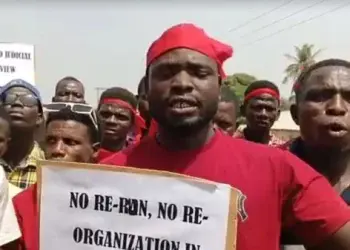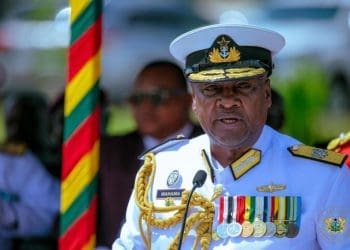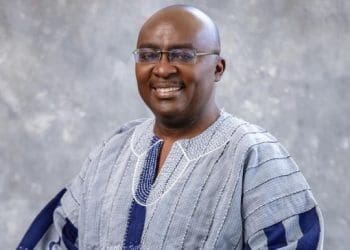Former Energy Minister and stalwart of the New Patriotic Party (NPP), Boakye Agyarko, has sharply criticised the party’s proposal to elect its 2028 flagbearer on January 31, 2025, describing the move as premature and misguided.
In a pointed critique that underscores growing unease within the NPP ranks, Agyarko warned that rushing to select a presidential candidate without first addressing core party issues would be tantamount to building a house in reverse.
The NPP announced Saturday, January 31, 2026, as the date for its presidential primary to elect a flagbearer for the 2028 general elections.
The announcement was made by the party’s General Secretary, Justin Kodua Frimpong, following a meeting on Tuesday, June 17, 2025. The party’s National Council subsequently endorsed the decision.
After the announcement, Boakye Agyarko, in a statement, criticised the party for taking such an action.
He warned that prioritising the flagbearer election ahead of other key internal elections could lead to significant problems for the party.
He also described the NEC’s decision as “strategically unsound, politically indefensible, and organisationally reckless,” stressing the potential risks of sidelining the established electoral order.
He said “I have followed with keen interest—and deep concern—the outcome of the National Executive Committee (NEC) meeting held on Tuesday, 17th June 2025, in Accra, where it was announced that the party will hold polling station executive elections on 6th December 2025, followed by the flagbearer election on 31st January 2026, while deferring elections for electoral area coordinators, constituency, regional, and national executives to dates yet to be announced.”
“Will you roof a building before laying the foundation? What manner of political logic is this? Where in any world—be it politics, construction, or common sense—do you install a roof before laying a foundation?” he asked.
According to him, it is politically misguided for a party like the NPP to elect a flagbearer before choosing the executives who are expected to support the presidential candidate during the campaign.
He criticised the NEC’s move as a complete departure from the party’s established practices, stating: “The NPP has always prided itself on order, process, and bottom-up empowerment. The grassroots—the polling station executives, electoral area coordinators, and constituency officers—are the heart of this party. We build from the ground up, not from the top down.”
While some NPP executives support the early election date as a way to stabilise leadership and give the flagbearer ample time to prepare, Agyarko believes it reflects misplaced priorities.
Political analysts suggest that early flagbearer elections could exacerbate existing factionalism within the party and complicate unity efforts.
Others, however, view it as a strategic move to give the eventual candidate time to rebuild the party’s image and national appeal.












